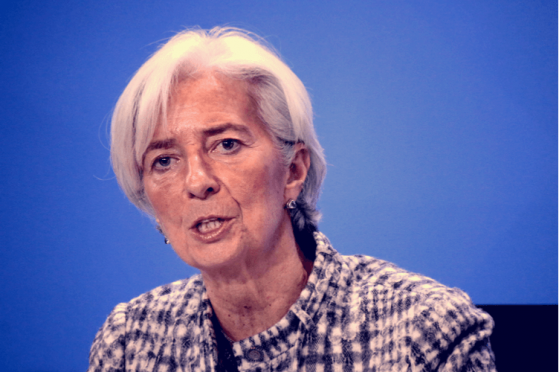IMF’s Christine Lagarde has been vocal about cryptocurrencies and blockchain technology since last year, adopting a measured approach toward the former and appreciating the disruptive potential of the latter.
Weighing in on the topic once again, in a recent blog post, Lagarde highlighted how the technology powering cryptocurrencies (blockchain) could increase efficiency in financial markets:
“The underlying technology of crypto-assets—distributed ledger technology, or DLT—could help financial markets function more efficiently. Self-executing and self-enforcing “smart contracts” could eliminate the need for some intermediaries.”
Currently, the use of smart contracts is most prevalent in initial coin offerings (ICOs), where contributors are automatically paid out in a set ratio, according to pre-set conditions. The main benefit of smart contracts is that they eliminate the need to trust a third-party, since the contracts verify all conditions, including sufficient funds, before executing.
In this regard, smart contracts are naturally applicable to financial industries, such as the clearing industry (cited by Lagarde) which relies heavily on trusted clearing houses.
However, which she acknowledged its usefulness, the IMF Managing Director went on to state that she does not believe that blockchain will replace brokers and bankers.
Lagarde also gave the example of secure storage as another use case for blockchain technology, as it allows the healthcare industry and other companies to maintain sensitive, confidential data while ensuring accessibility where required, as is the case with insurance companies.
Securing property rights in developing countries is yet another application for blockchain tech, according to Lagarde, especially in regions where governmental records routinely fail to prevent land disputes and fraudulent ownership cases.
Finally, Lagarde stressed the need for international cooperation, especially in regulatory matters, to ensure that crypto-assets can impact the global economy in “a meaningful and lasting way”.
The IMF’s stance on cryptocurrencies has been balanced but cautious – while it has acknowledged the potential of DLT time and again, the organization has always maintained that cryptocurrencies require regulation. Last month, Lagarde stated that blockchain technology should be used to ‘fight fire with fire’ – i.e., to regulate and counter the dangers posed by digital currencies.
This article appeared first on Cryptovest
